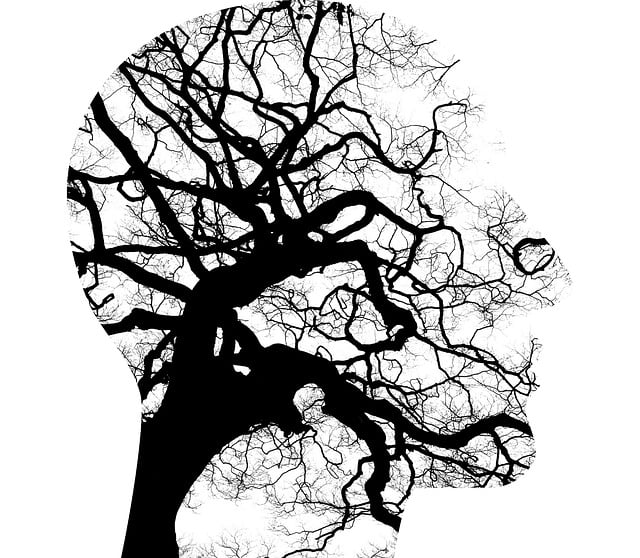Adolescents in polyamorous or open relationships face unique stress factors, requiring tailored interventions. Organizations can combat this by offering workshops focused on emotional regulation, interpersonal connections, and burnout prevention using mindfulness techniques like journaling and guided exercise. These inclusive spaces foster open communication, build community, and provide crisis intervention guidance, empowering teens with sustainable tools for managing academic pressures, relationship dynamics, and identity formation. The goal is to ensure the well-being of these young individuals by addressing their specific mental health needs.
Stress management workshops play a vital role in fostering resilience, especially for teens navigating the challenges of adolescence. This article explores effective strategies for organizing such workshops, focusing on tailored approaches for polyamorous and open relationships. By understanding the unique stress factors faced by these individuals, facilitators can create safe spaces through practical techniques, enabling participants to develop healthy coping mechanisms. We delve into methods to build a supportive environment, catering to diverse needs, while emphasizing the importance of therapy for adolescent teens in these relationships.
- Understanding Stress and Its Impact on Teens
- Tailoring Workshops for Polyamorous and Open Relationships
- Practical Strategies for Effective Stress Management
- Creating a Supportive Environment for All Participants
Understanding Stress and Its Impact on Teens

Stress is a prevalent issue among teens today, often stemming from academic pressures, social dynamics, and navigating complex identities. For adolescents exploring polyamorous or open relationships, stress can be exacerbated by the unique challenges they face in understanding and expressing their emotional connections. This growing demographic requires tailored support to manage stress effectively, fostering healthy coping mechanisms that will benefit them both personally and within their communities.
By recognizing the impact of stress on this specific group, organizations can develop targeted interventions. Workshops focused on emotional regulation techniques, community outreach programs, and burnout prevention strategies for healthcare providers can all contribute to a holistic approach to adolescent mental health. Addressing these issues early is vital to ensuring teens thrive and develop resilient coping mechanisms, especially those navigating non-traditional relationship structures like polyamory.
Tailoring Workshops for Polyamorous and Open Relationships

In today’s diverse social landscape, it’s crucial to offer tailored support for unique relationship dynamics, such as polyamorous and open relationships. Many individuals within these communities struggle with specific stress factors that differ from traditional family structures. Thus, specialized workshops can significantly contribute to Mental Health Awareness. These sessions should delve into the nuances of managing interpersonal connections, boundaries, and commitment in non-monogamous arrangements. By fostering an inclusive environment, participants can explore effective coping mechanisms and enhance their overall well-being.
Organizers have a pivotal role in ensuring these workshops cater to the specific needs of teens and young adults navigating polyamorous or open relationships. Incorporating Mind Over Matter Principles can empower attendees with the mental tools to confront Burnout Prevention. Through interactive activities, group discussions, and expert insights, individuals can learn to manage stress, cultivate resilience, and foster healthy relationship dynamics.
Practical Strategies for Effective Stress Management

Stress management workshops play a vital role in equipping individuals with practical strategies to navigate life’s challenges. For adolescents and teens, especially those navigating complex relationships like polyamorous or open dynamics, these workshops offer safe spaces to explore stress triggers and develop healthy coping mechanisms. Incorporating mindfulness techniques, such as journaling and guided exercise, allows participants to connect with their emotions, fostering improved mental wellness.
Cultural sensitivity in mental healthcare practice is integral to ensuring every participant feels seen and heard. By recognizing the impact of individual experiences and identity on stress perception, workshop facilitators can tailor guidance for effective mood management. This personalized approach empowers individuals to take control of their well-being, offering sustainable tools for navigating life’s stressors, whether they stem from academic pressures, relationship dynamics or personal identity exploration.
Creating a Supportive Environment for All Participants

Creating a safe and supportive environment is paramount for effective stress management workshops, especially when catering to diverse groups like adolescent teens exploring polyamorous and open relationships. This involves ensuring every participant feels seen, heard, and valued. Incorporating inclusive practices in workshop design means considering different personal boundaries, cultural backgrounds, and emotional needs. For instance, providing options for participation, such as group discussions or individual reflections, allows each teen to engage according to their comfort level.
The space should also encourage open communication, fostering a culture where sharing experiences and emotions is normalized. This can be achieved through ice-breakers that promote connection and activities that build community. In addition, incorporating practices like Mindfulness Meditation and Mental Health Education Programs Design can provide valuable tools for managing stress within these relationships. Crisis Intervention Guidance should be readily available to address any emotional crises that may arise during the workshops.
Stress management workshops tailored to the unique needs of teens, polyamorous individuals, and open relationship communities can significantly enhance mental well-being. By addressing stress from various angles, these sessions offer practical strategies and a supportive environment for all participants. Incorporating knowledge about stress impact on adolescents, adapting content for non-traditional relationships, and fostering an inclusive atmosphere are key to successful outcomes. This approach not only empowers individuals with effective coping mechanisms but also promotes overall resilience in navigating life’s challenges, especially within the context of modern family structures.














